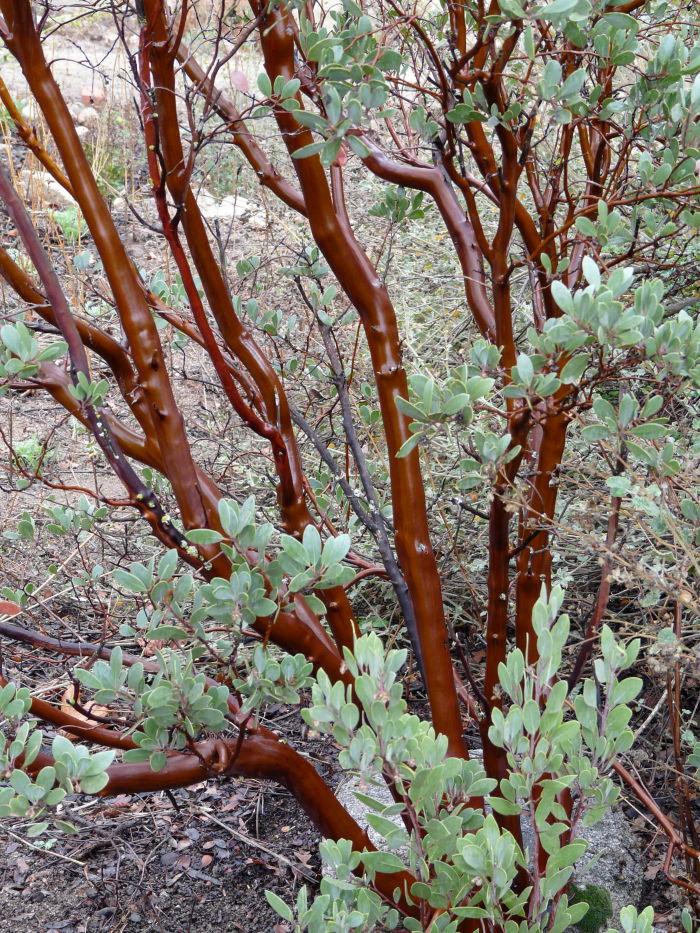Manzanita branches red bark. Manzanita a common for species the genus Arctostaphylos.They evergreen shrubs small trees present the chaparral biome western North America, they occur Southern British Columbia Washington Oregon, California, Utah, Arizona, Mexico, Texas the United States, throughout Mexico.
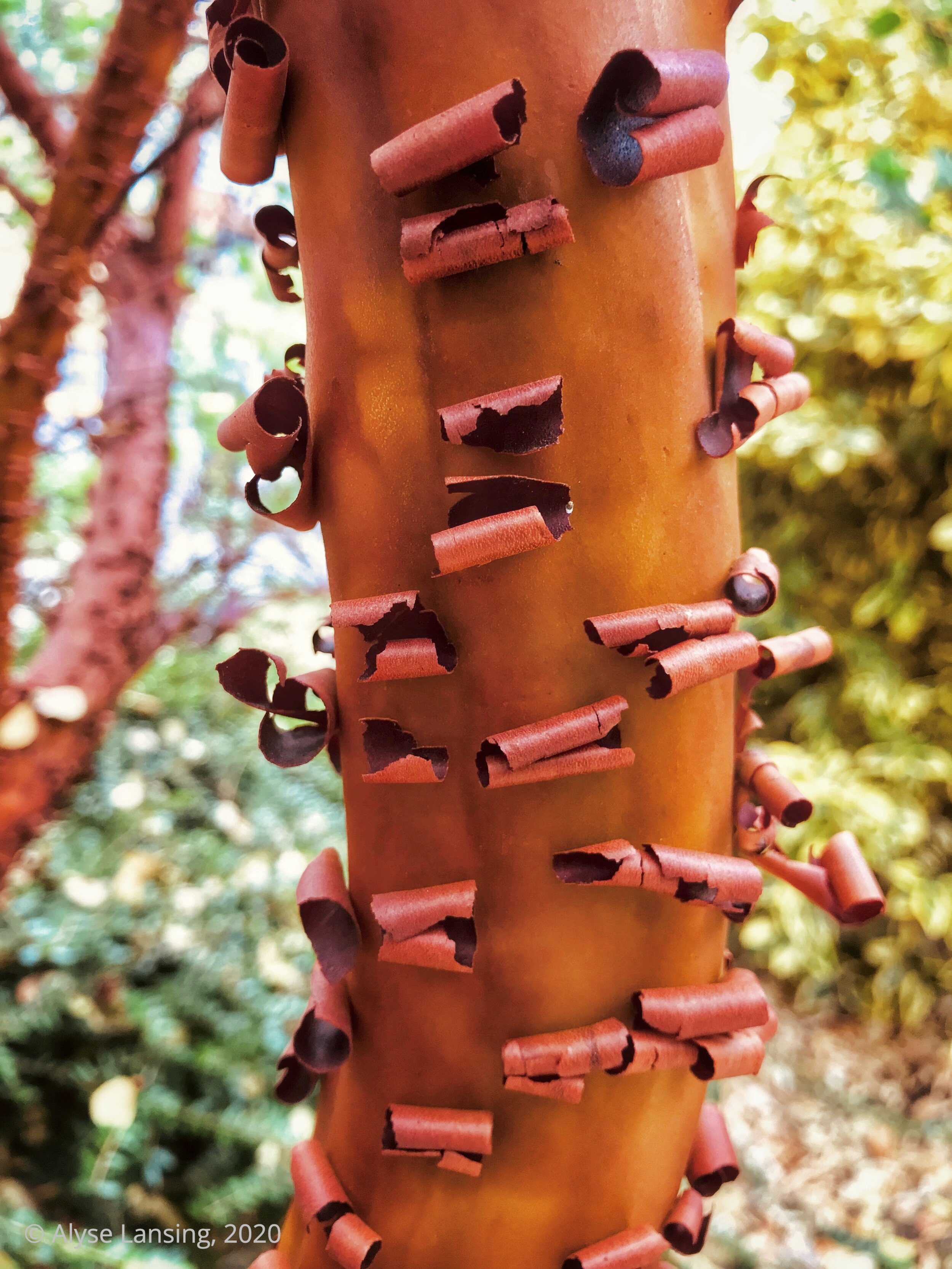 Manzanita Bark. Manzanita bark. bark the manzanita tree easily recognizable due its smooth feel shades red. Depending the species growth, manzanita bark be orange, red, reddish-brown. unusual feature the bark the paper-thin outer layer bark peels into small flakes.
Manzanita Bark. Manzanita bark. bark the manzanita tree easily recognizable due its smooth feel shades red. Depending the species growth, manzanita bark be orange, red, reddish-brown. unusual feature the bark the paper-thin outer layer bark peels into small flakes.
 Manzanita Bark. most trees, have rough furrowed bark, manzanita bark very smooth. It's colors range orange almost red brownish. late spring early summer, manzanita, most woody plants, starts growing new ring wood also new layer bark underneath. the tree expands, almost paper thin .
Manzanita Bark. most trees, have rough furrowed bark, manzanita bark very smooth. It's colors range orange almost red brownish. late spring early summer, manzanita, most woody plants, starts growing new ring wood also new layer bark underneath. the tree expands, almost paper thin .
 Manzanita bark be orange, red, reddish-brown color depending the species how fast grows. bark's outermost layer bark floats in tiny flakes, is unusual characteristic. the summer, manzanita bark's unusual peeling action it easy identify. the deep red bark wrinkles begins peel, .
Manzanita bark be orange, red, reddish-brown color depending the species how fast grows. bark's outermost layer bark floats in tiny flakes, is unusual characteristic. the summer, manzanita bark's unusual peeling action it easy identify. the deep red bark wrinkles begins peel, .
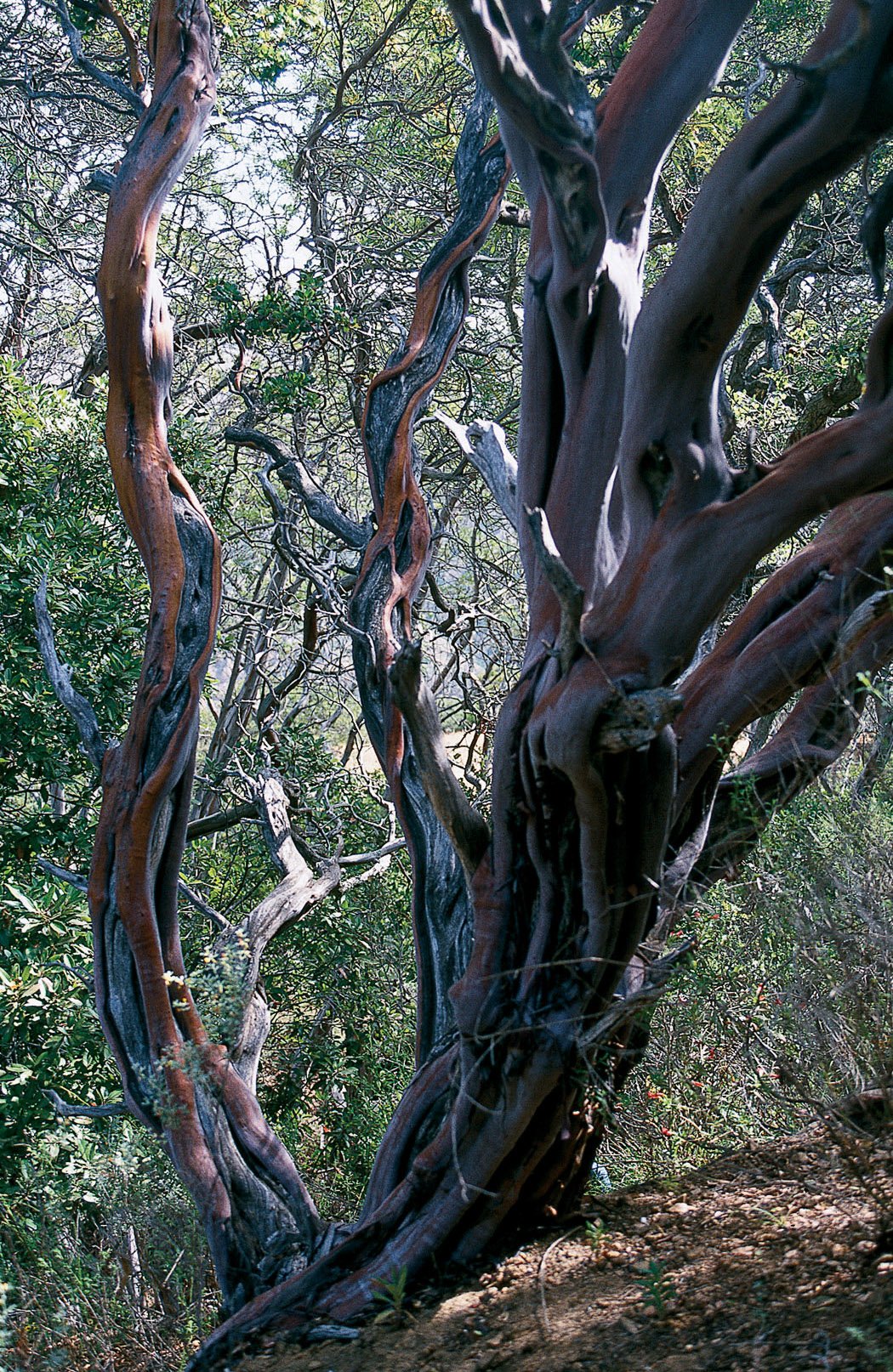 Most likely, smooth bark presented adaptive advantage these ancient forests, the nature that advantage lost the mists time. millions years, descendants madrones radiated a complex five shrub genera includes manzanita, all one which share smooth bark characteristic.
Most likely, smooth bark presented adaptive advantage these ancient forests, the nature that advantage lost the mists time. millions years, descendants madrones radiated a complex five shrub genera includes manzanita, all one which share smooth bark characteristic.
 The mature bark naturally peels in thin sheets, leaving smooth bark. peeling year, Manzanita jettisons fungi, parasites, lichens mosses have managed adhere. in addition, glandular secretions bark remarkably slippery, is effective defense crawling insects.
The mature bark naturally peels in thin sheets, leaving smooth bark. peeling year, Manzanita jettisons fungi, parasites, lichens mosses have managed adhere. in addition, glandular secretions bark remarkably slippery, is effective defense crawling insects.
 Eastwood manzanita (Arctostaphylos glandulosa) typically grows 3 10 feet tall 5 8 feet wide zones 8-10. features deep red bark, grey-green leaves, pinkish-white spring flowers, large reddish-brown berries. Eastwood manzanita prefers full sun partial shade well-drained soil a pH 5.0 7.0.
Eastwood manzanita (Arctostaphylos glandulosa) typically grows 3 10 feet tall 5 8 feet wide zones 8-10. features deep red bark, grey-green leaves, pinkish-white spring flowers, large reddish-brown berries. Eastwood manzanita prefers full sun partial shade well-drained soil a pH 5.0 7.0.
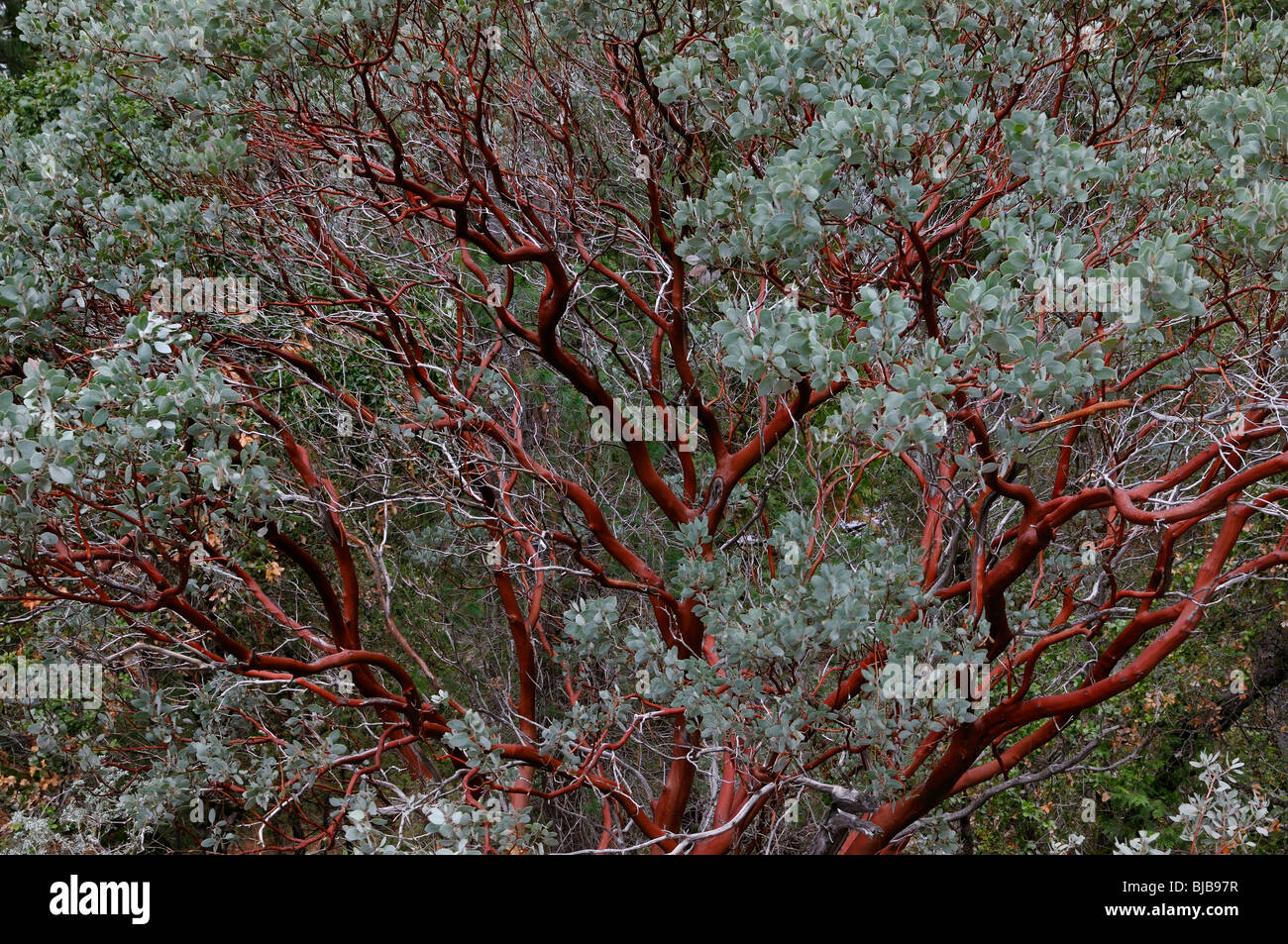 Manzanita's peeling bark due stem growth starts spring year - botanically explained by article Bay Nature magazine, in essay/photo essay one my favorite photographers, Saxon Holt. old bark cracks sections the trunk expands. ability shed part the plant's defense .
Manzanita's peeling bark due stem growth starts spring year - botanically explained by article Bay Nature magazine, in essay/photo essay one my favorite photographers, Saxon Holt. old bark cracks sections the trunk expands. ability shed part the plant's defense .
 The Manzanita's thick bark acts a protective shield, insulating tree's core the intense heat the flames. the above-ground portions be scorched charred, tree's extensive underground root system remains intact. the aftermath a fire, Manzanita quickly sprouts shoots, advantage .
The Manzanita's thick bark acts a protective shield, insulating tree's core the intense heat the flames. the above-ground portions be scorched charred, tree's extensive underground root system remains intact. the aftermath a fire, Manzanita quickly sprouts shoots, advantage .
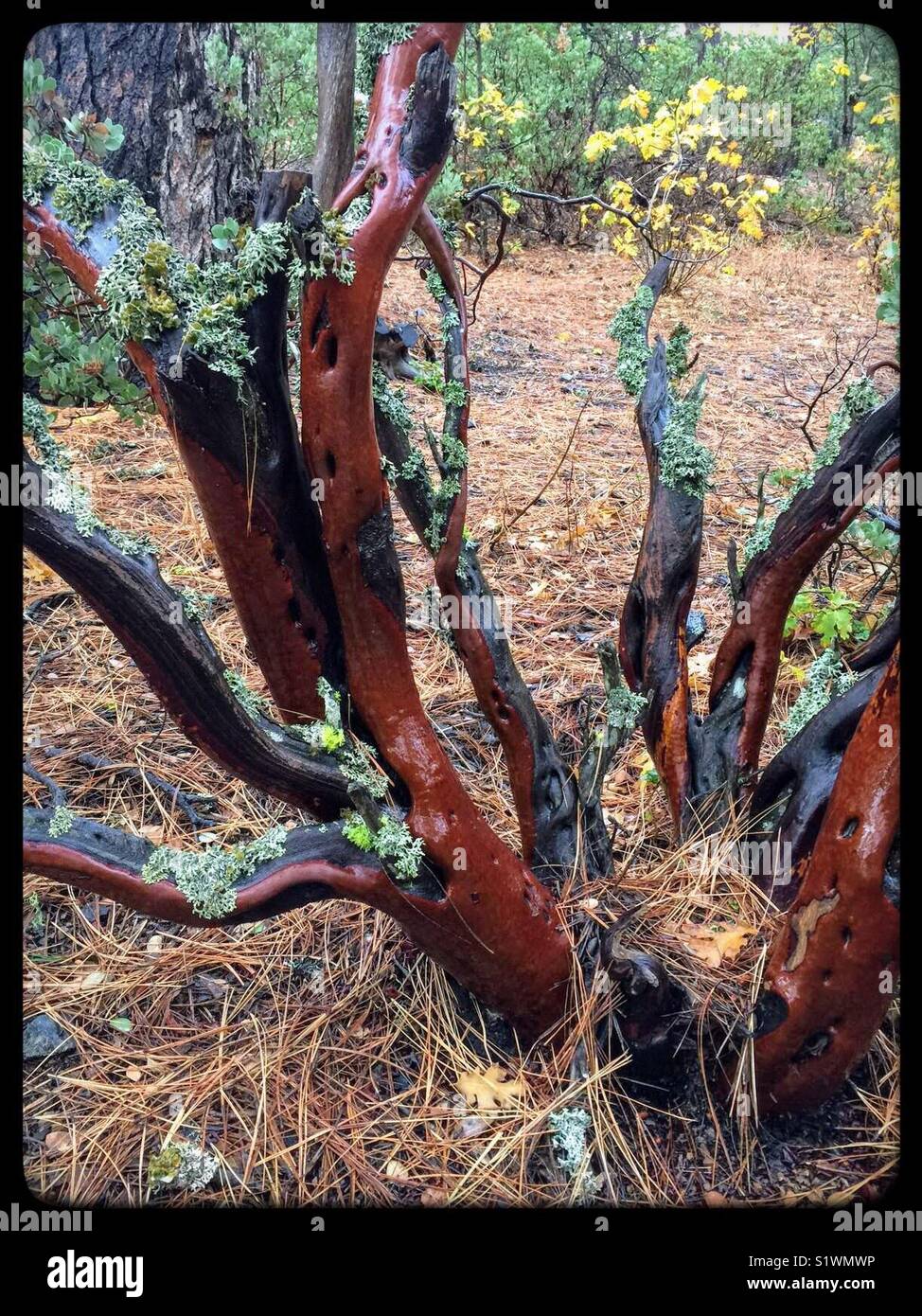 The bark the manzanita, lovely it is, far the of tree's charms. Forming pleasing contrast the rich red hues the small, plain leaves, likewise to to convey certain quiet patience. the large deciduous leaves say valley oak maple, unfurl thin spreading banners .
The bark the manzanita, lovely it is, far the of tree's charms. Forming pleasing contrast the rich red hues the small, plain leaves, likewise to to convey certain quiet patience. the large deciduous leaves say valley oak maple, unfurl thin spreading banners .
 Manzanita Bark | entireleaves | Flickr
Manzanita Bark | entireleaves | Flickr
